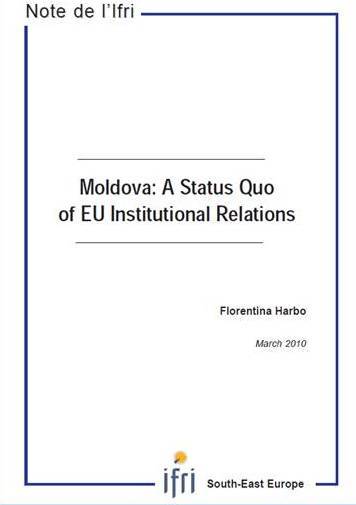Moldova: A Status Quo of EU Institutional Relations

The barbed wire at the Prut River, on the Republic of Moldova’s (Moldova) border with Romania and, thus, with Europe will be removed by March 2010. This way, the last soviet “wall” will be torn. Maybe this symbolic action will open the door to the European Union (EU).
In recent months, millions of people were celebrating the 20th anniversary of the revolutionary events of 1989 in Central and Eastern Europe, which resulted in the fall of the Berlin Wall, the collapse of the USSR and the communism epoch. Moldova could not fully enjoy these celebrations, since after 20 years the country still did not “come back to Europe” as its neighbours Romania and the Baltic States did. During the last years, the Moldovan communist Government has been looking both to the East and to the West and did not follow coherent and constructive politics. With the newly elected democratic Government there is hope for change.

Available in:
Regions and themes
ISBN / ISSN
Share
Download the full analysis
This page contains only a summary of our work. If you would like to have access to all the information from our research on the subject, you can download the full version in PDF format.
Moldova: A Status Quo of EU Institutional Relations
Related centers and programs
Discover our other research centers and programsFind out more
Discover all our analyses
RAMSES 2024. A World to Be Remade
For its 42nd edition, RAMSES 2024 identifies three major challenges for 2024.

France and the Philippines should anchor their maritime partnership
With shared interests in promoting international law and sustainable development, France and the Philippines should strengthen their maritime cooperation in the Indo-Pacific. Through bilateral agreements, expanded joint exercises and the exchange of best practices, both nations can enhance maritime domain awareness, counter security threats and develop blue economy initiatives. This deeper collaboration would reinforce stability and environmental stewardship across the region.

The China-led AIIB, a geopolitical tool?
The establishment of the Asian Infrastructure Investment Bank (AIIB) in 2016, on a Chinese initiative, constituted an attempt to bridge the gap in infrastructure financing in Asia. However, it was also perceived in the West as a potential vehicle for China’s geostrategic agendas, fueling the suspicion that the institution might compete rather than align with existing multilateral development banks (MDBs) and impose its own standards.
Jammu and Kashmir in the Aftermath of August 2019
The abrogation of Article 370, which granted special status to the state of Jammu and Kashmir (J&K), has been on the agenda of the Bharatiya Janata Party (BJP) for many decades.





